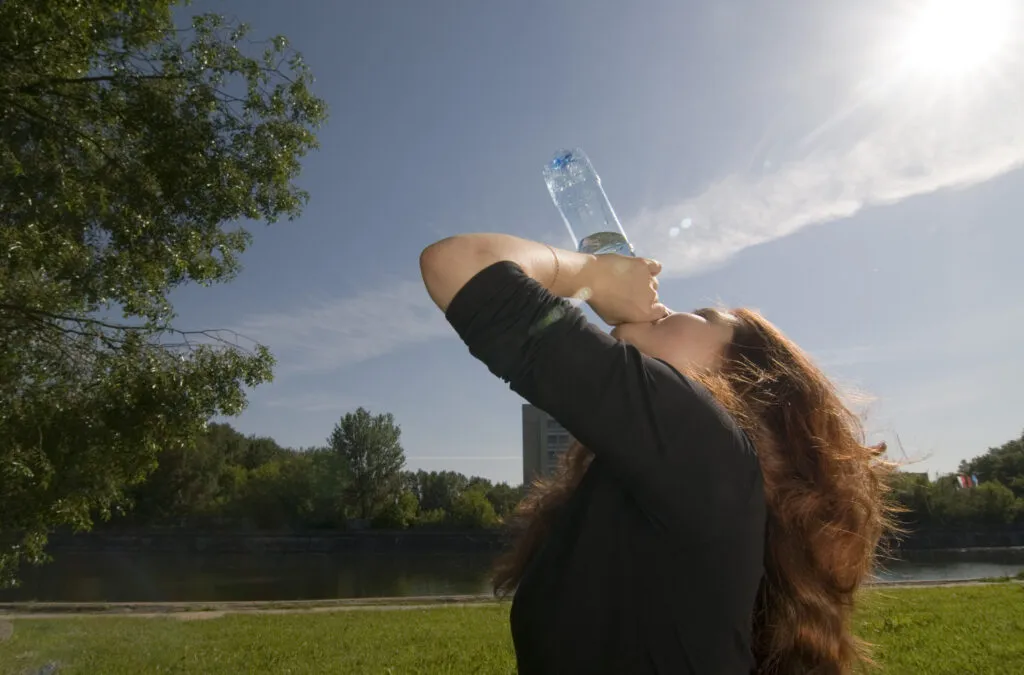How much water should I drink a day?

How much water should I drink a day?
In the realm of health and wellness, few pieces of advice are as ubiquitous as the recommendation to stay hydrated. We’re often told to drink plenty of water each day, but the question remains: how much is enough? Let’s dive into the science of hydration and explore how much you should drink every day to keep your body functioning at its best.
Understanding Your Body’s Water Needs
Water is essential for life. It plays a vital role in nearly every bodily function, from regulating temperature to aiding digestion and nutrient absorption. Without an adequate intake of water, our bodies simply cannot function optimally.
The amount of water each person needs can vary based on several factors, including age, gender, weight, activity level, climate, and overall health. As a general guideline, the Institute of Medicine recommends that men aim for about 3.7 liters (or about 13 cups) of total water intake per day, while women should aim for approximately 2.7 liters (or about 9 cups) of total water intake per day. However, it’s essential to note that this includes water from all sources, not just beverages. Foods with high water content, such as fruits and vegetables, also contribute to your overall hydration.
Factors Influencing Hydration Needs:
Several factors can influence how much water you need to drink each day:
- Activity Level: If you’re physically active or live in a hot climate, you’ll likely need to drink more water to replace fluids lost through sweating.
- Body Size: Larger individuals typically have a higher metabolic rate and thus may require more water to maintain proper hydration.
- Health Conditions: Certain medical conditions, such as kidney disease or diabetes, can affect your body’s water balance and may require adjustments to your fluid intake.
- Pregnancy or Breastfeeding: Pregnant or breastfeeding individuals have increased fluid needs to support the growth and development of the baby.
Signs of Dehydration:
It’s essential to listen to your body’s cues to ensure you’re adequately hydrated. Some common signs of dehydration include:
- Thirst
- Dark-colored urine
- Fatigue
- Dizziness or lightheadedness
- Dry mouth, lips, or skin
- Headache
Tips for Staying Hydrated :
Meeting your daily hydration needs doesn’t have to be complicated. Here are some simple tips to help you stay adequately hydrated:
- Drink Water Throughout the Day: Sip on water regularly, rather than waiting until you feel thirsty.
- Keep a Water Bottle Handy: Carry a reusable water bottle with you wherever you go, so you can easily hydrate on the go.
- Eat Water-Rich Foods: Incorporate fruits and vegetables with high water content, such as watermelon, cucumbers, and oranges, into your diet.
- Monitor Your Urine Color: Aim for pale yellow urine, which is a sign of adequate hydration.
- Pay Attention to Your Thirst: Thirst is your body’s way of signaling that it needs more fluids, so listen to your body and drink water when you feel thirsty.
conclusion:
the amount of water you should drink every day depends on various factors, including your age, gender, activity level, and overall health. By paying attention to your body’s cues and making hydration a priority, you can ensure that you’re meeting your body’s needs and maintaining optimal health and well-being. So drink up, and here’s to staying hydrated and feeling your best!
FAQs:
How much water should I drink each day?
While the general guideline is around 3.7 liters (or about 13 cups) for men and 2.7 liters (or about 9 cups) for women, individual water needs vary based on factors like age, weight, activity level, and climate. It’s important to listen to your body’s thirst cues and aim for enough fluid intake to maintain pale yellow urine
Can I meet my hydration needs with beverages other than water?
Yes, various beverages such as herbal tea, fruit-infused water, and milk can contribute to your daily fluid intake. However, it’s essential to be mindful of added sugars and caffeine content in some beverages, as they can affect hydration levels.
Is it possible to drink too much water?
While rare, overhydration, or hyponatremia, can occur if you drink excessively large amounts of water in a short period, leading to an imbalance of electrolytes in the body. It’s crucial to drink fluids in moderation and not force yourself to drink beyond your body’s needs.
Does food contribute to daily hydration?
Yes, fruits and vegetables with high water content, such as watermelon, cucumber, and oranges, can contribute to your overall hydration. Consuming water-rich foods can be an effective way to supplement your fluid intake, especially for those who struggle to drink enough water.
What are some signs of dehydration to watch out for?
Common signs of dehydration include thirst, dark-colored urine, fatigue, dizziness, dry mouth or skin, and headache. If you experience any of these symptoms, it’s essential to replenish fluids promptly by drinking water or other hydrating beverages.
Must read:
What Causes Numbness in Hands While Sleeping?
Secrets of DMT Meditation: What Is DMT Meditation and How Does It Work?
Benefits of Cirkul Water Bottle for On-the-Go Hydration | 2023
Why Does Conjunctivitis Eye Infection Happen? | Pink Eye | 2023
Exploring the Exciting World of AI Technology | 2023
Top 8 Japanese Dog Breeds: A Closer Look at the Most Beloved and Iconic Breeds from Japan
Reason Behind Pollution in Delhi in Winter Season: Causes and Solutions
A Festival of Lights and Togetherness in India
Why is Quantum Computing Useful For Optimization Problems? | Reshaping Industries | 2023
Do You Know? – How to apply for overseas education loan in India
New Heights: The Race for America’s Tallest Building | 2024





